Source: Jamaica Observer
(Photos and links added by Editor)
Al Grey
Ever since Jamaica earned formal political freedom from the British colonial empire, the government and people of Jamaica have had two basic choices in terms of developmental paths open to the nation – one, a neo-colonialist path that would continue the exploitation of our natural resources and people in the interest of the multinational corporations and a few Jamaicans, and the other, a path that would sever the colonial relation and start a process of development for the majority of the people.
 In 1962, under the leadership of the Jamaica Labour Party with Alexander Bustamante as its head and with a politically divided people, the nation took the neocolonial path where a disproportionate part of the wealth generated by the productive forces in Jamaica continued to go to the multinational companies and the local elite class.
In 1962, under the leadership of the Jamaica Labour Party with Alexander Bustamante as its head and with a politically divided people, the nation took the neocolonial path where a disproportionate part of the wealth generated by the productive forces in Jamaica continued to go to the multinational companies and the local elite class.
The neocolonial path was not a purely economic one. It also manifested itself in our popular culture. The music played on the national radio station continued to be predominantly non-Jamaican; the movie theaters continued to show films with few persons of African descent ever seen in a positive role; our manner of dress continued to be of the colonial ilk – judges wearing wigs, the dress code for church and formal activities remained incongruous with our tropical climate; despite the population being over 90% African our ‘Miss Jamaica’ competitions continued to shun women of pure African stock, and so on. (Photo: Alexander Bustamante, Prime Minister of Jamaica and President of the Jamaica Labour Party, 1962)
Look deh now: Everything crash
 According to the indicators provided by some economists, Jamaica was doing quite well along the neocolonial path in the 60s showing respectable economic growth. Yet in the 1972 national elections, the people strongly rejected the JLP and the Michael Manley led People’s National Party, PNP, registered a landslide victory. In fact, the sound track for the struggles to remove the neocolonialist JLP was the then very popular Reggae song Everything Crash by the Ethiopians – a song which started with the words ‘Look deh now, everything crash’. What was seen as development for the 1% attracted these words from a wider cross-section of the people including the youth, workers and farmers.
According to the indicators provided by some economists, Jamaica was doing quite well along the neocolonial path in the 60s showing respectable economic growth. Yet in the 1972 national elections, the people strongly rejected the JLP and the Michael Manley led People’s National Party, PNP, registered a landslide victory. In fact, the sound track for the struggles to remove the neocolonialist JLP was the then very popular Reggae song Everything Crash by the Ethiopians – a song which started with the words ‘Look deh now, everything crash’. What was seen as development for the 1% attracted these words from a wider cross-section of the people including the youth, workers and farmers.
Why would a nation whose macroeconomic indicators looked so good, reject its leadership so vigorously? The answer to this question suggests an important lesson that we should have learned from this period. The indicators of development and well-being that were provided by these economists and popularized by the mass media and the neocolonialist JLP government of the newly independent Jamaica were clearly not the critical ones from the perspective of the majority of the people as they camouflaged the level of poverty, inequality, racism and alienation experienced by the Jamaican masses. This lesson is especially relevant to us today as again the specific macroeconomic indicators used by some economists, especially those from the IMF, when looked at in isolation from other economic realities like the levels of unemployment and poverty, suggest a neoliberal path to recovery which history shows will increase the hardship on the people without any real benefit for them down the road.
A new day
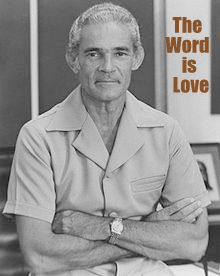 With the ‘crash’ of one of the two basic paths open to Jamaica after political independence, it would have been foolhardy for any new leader to continue the same old policies that benefitted the 1%, the MNCs and the Jamaican elite. Hence it was not surprising that Michael Manley, the charismatic leader of the PNP, chose the other path, the path of enrichment for the majority in his programme of democratic socialism.
With the ‘crash’ of one of the two basic paths open to Jamaica after political independence, it would have been foolhardy for any new leader to continue the same old policies that benefitted the 1%, the MNCs and the Jamaican elite. Hence it was not surprising that Michael Manley, the charismatic leader of the PNP, chose the other path, the path of enrichment for the majority in his programme of democratic socialism.
Michael Manley made vast changes in several areas of Jamaican life. Facing a savage increase in oil prices, he sought to get a fair share of the earnings from the bauxite industry. Education became free and this gave many from the working class a chance to attend the University of the West Indies. Women earned a new level of respect legally through a new maternity leave law. Michael revived the Garveyite concept of self-reliance and embraced a Rastafarian ethic through the expression ‘The word is love’.
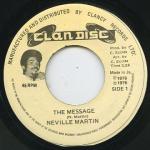 Internationally, Michael made links with the progressive countries in the region, especially Cuba, and, along with the leaders from Barbados, Guyana and Trinidad, initiated a process of ending the isolation of Cuba in the CARICOM. He was highly respected in Africa and in the non-aligned countries where he championed the case for a new international economic order. For the second time in our nation’s history, a Jamaican personality was considered one of the most outstanding political leaders in the world — the first being Marcus Garvey. Again, the popular Jamaican music was to reflect the struggles of the people and Neville Martin’s The Message forcefully told the tale that “Socialist ah nuh fool” while asking “Who are those people, who nuh love progress?” – meaning, of course, progress for the majority.
Internationally, Michael made links with the progressive countries in the region, especially Cuba, and, along with the leaders from Barbados, Guyana and Trinidad, initiated a process of ending the isolation of Cuba in the CARICOM. He was highly respected in Africa and in the non-aligned countries where he championed the case for a new international economic order. For the second time in our nation’s history, a Jamaican personality was considered one of the most outstanding political leaders in the world — the first being Marcus Garvey. Again, the popular Jamaican music was to reflect the struggles of the people and Neville Martin’s The Message forcefully told the tale that “Socialist ah nuh fool” while asking “Who are those people, who nuh love progress?” – meaning, of course, progress for the majority.
Many who lived through this period and who were on the side of the poor believe that the eight years during which self-determination and sovereignty took centre-stage as the nation tried to carve out a path of self-reliance and genuine independence were the best days of their lives. Others have the opposite view – especially those who were from the class that benefited from the economy before the ‘crash’ or those who were sold on the neocolonialist ideas – in particular the idea that national economic well-being for the masses can result only from the big MNCs and local capitalists who employ the small people – i.e. growth is really about the ‘trickling down’ of benefits from the rich to the poor.
Neocolonial terrorists
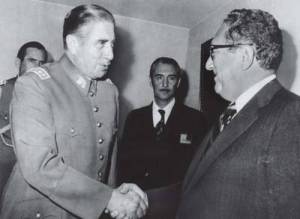 Unfortunately, as history has shown, imperialism does not give up profits in a democratic way. In Chile, Allende, after trying three times and failing through the ballot all three times (in 1952, 1958 and 1964) finally earned a majority at the polls in 1970, eighteen years after his first attempt. Allende was democratically elected as president of Chile in January 1970. Three years later an imperialist inspired coup led to his death and the death of thousands of Chilean patriots. It is now common knowledge that the US backed the brutal dictator, General Pinochet who was the leader of the coup. Importantly, Pinochet was guided by the Chicago school economists under Milton Friedman who pushed for neo-liberal policies which impoverished large sections of the country but which, like Jamaica in the 60s, allowed the country to show some positive macroeconomic indicators. Some of these same Friedmanite measures are today being implemented in Jamaica supposedly as the only medicine that can help an ailing economy. (Photo: Pinochet and US Secretary of State, Kissinger)
Unfortunately, as history has shown, imperialism does not give up profits in a democratic way. In Chile, Allende, after trying three times and failing through the ballot all three times (in 1952, 1958 and 1964) finally earned a majority at the polls in 1970, eighteen years after his first attempt. Allende was democratically elected as president of Chile in January 1970. Three years later an imperialist inspired coup led to his death and the death of thousands of Chilean patriots. It is now common knowledge that the US backed the brutal dictator, General Pinochet who was the leader of the coup. Importantly, Pinochet was guided by the Chicago school economists under Milton Friedman who pushed for neo-liberal policies which impoverished large sections of the country but which, like Jamaica in the 60s, allowed the country to show some positive macroeconomic indicators. Some of these same Friedmanite measures are today being implemented in Jamaica supposedly as the only medicine that can help an ailing economy. (Photo: Pinochet and US Secretary of State, Kissinger)
The imperialists applied the same ‘successful’ Chile model of destabilization in Jamaica. They applied the same strategy of ‘making the economy scream’, creating artificial shortages of basic items, promoting violence, including the savage murder of 150 people in a home for the elderly. Violence erupted in Jamaica as was never seen before in the ‘shock and awe’ tactics mastered by the imperialists whenever they want to create fundamental change in someone else’s country. Manley and Jamaica yielded under the pressure and eventually took the IMF route.
The IMF route and the general destabilization programme created favourable conditions for the return of the pro-imperialist JLP who re-took power in 1980 and as they promised, ‘turned them back’, returning the country to the first path that had led to the ‘crash’. The re-run of the already crashed path had a major cultural impact. From the height of the conscious lyrics made popular locally and international by groups like Bob Marley and the Wailers and the Burning Spear, Jamaican music receded to the point where the more conscious songs were stifled giving way to the more culturally depraved music which began to dominate the pop culture. The JLP ruled again until 1989 when Michael Manley led the PNP to another victory after boycotting a ‘snap election’ called in 1983 by then JLP president Edward Seaga. Michael left national political life in 1992.
Despite the victory of the PNP, however, Jamaica has remained solidly along a neoliberal path since 1980. Today, from an ideological perspective, there is really no fundamental difference between the two dominant political parties in Jamaica although differences in styles, approaches and personalities remain and have had an impact on the electorate. In essence therefore we are faced with singing different songs in different colours but marching along the same dead-end path for the poor.
The challenge today
And so the challenge we face remains the same as that which our departed brother Michael faced in 1972.
 Today, however, the Caribbean and Latin American region is significantly different from the 70s. PetroCaribe, ALBA and CELAC and their links with the rest of the world have created avenues for development hitherto unavailable to countries like Jamaica. Unfortunately, the vast majority of our people know nothing of these bodies even though they have already started to impact positively on the region.
Today, however, the Caribbean and Latin American region is significantly different from the 70s. PetroCaribe, ALBA and CELAC and their links with the rest of the world have created avenues for development hitherto unavailable to countries like Jamaica. Unfortunately, the vast majority of our people know nothing of these bodies even though they have already started to impact positively on the region.
ALBA, the Bolivarian Alliance for the Peoples of Our America, is a regional bloc conceived by the late Venezuelan President Hugo Chavez and created in 2004 by Venezuela and Cuba. Initially, it was thought of as an alternative to the US-led Free Trade Area of the Americas, FTAA, but later it was renamed to emphasize that it was an alliance of countries and not just an alternative to an existing organization.
There are nine member states now in ALBA – Antigua and Barbuda, Bolivia, Cuba, Dominica, Ecuador, Nicaragua, Saint Lucia, St. Vincent and the Grenadines and Venezuela and the leaders of these countries have annual summits to discuss initiatives and strategies for the region. ALBA’s main goals are to alleviate poverty and to promote socioeconomic reform through trade agreements that meet each country’s needs, rather than through the neoliberal, or free-market, economic policies that dominated the region’s economic planning and growth strategies in the 1990s. To that end, the ALBA Bank, a regional bank with its headquarters in Caracas, Venezuela, was created in 2008 to channel money to development projects throughout the region.
Our sister nation, Haiti, which has faced extreme difficulty as a result of the recent earthquake and the NATO-generated cholera epidemic, has benefitted significant from ALBA countries and has indicated that it will become a member.
What is CELAC?
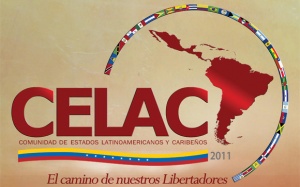 The Community of Latin American and Caribbean States (known as CELAC by its initials in Spanish) is a regional bloc of countries launched on the 23rd of February 2010 following an agreement at the Rio Group–Caribbean Community Unity Summit. It is composed of all sovereign countries in the Americas except the US and Canada.
The Community of Latin American and Caribbean States (known as CELAC by its initials in Spanish) is a regional bloc of countries launched on the 23rd of February 2010 following an agreement at the Rio Group–Caribbean Community Unity Summit. It is composed of all sovereign countries in the Americas except the US and Canada.
CELAC was officially launched at an inaugural summit hosted by Venezuela on the 2nd – 3rd of December 2011. The summit was attended by over 30 heads of state of Latin American and Caribbean countries.
Purpose of CELAC
The aim of CELAC is to deepen Latin American and Caribbean unity and cooperation and to reduce US economic, political, military, and cultural domination in the region. CELAC is proposed as a more balanced and equitable organisation than the Organization of American States (OAS) that has been largely dominated by the US since its establishment in 1948.
CELAC has already had significant impact on the region and only recently Jamaica hosted a successful second Meeting of Ministers of Energy of CELAC in Montego Bay. The meeting provided an opportunity for consensus to strengthen the complementarity of the two sub-regions on energy issues.
Whither Jamaica?
So, as mentioned above, the context in which the PNP would revisit Michael’s path is a considerably different one and one that is much more favourable to Jamaica and the developing countries of the region generally.
Our decision to go the IMF route signals that for whatever reasons Jamaica has decided to take a path which historically has benefited the foreign companies and a small group of Jamaicans at the expense of the majority.
I am suggesting that there is an alternative and that taking this alternative path or revisiting Michael’s initial path before the US-led destabilization is the challenge facing the PNP and the nation.
The history of the JLP has made them irrelevant from the standpoint of the liberation of the poor. They have a history of dividing the people locally and regionally and siding with the foreign interests against those of the Jamaican poor.
While Bruce Golding seemed Michael-like in some ways, e.g. emphasizing self-reliance, Andrew Holness has a glorious opportunity to become the first JLP leader to end his party’s divisive history. Difficult and maybe even far-fetched as this might sound, I suggest to him that he try to merge with the PNP and finally rid Jamaica of the nonsense that everyone knows has never benefited the people.
I suggest that top on his agenda must be UNITING the people on a path of self-reliance and regionalism and bottom on his agenda must be the well-being of the politicians who, per capita, benefit more from a two-party system than the people. As a young man he should lead the struggle to end the generations of petty partisan politics and earn a place in the history books as the first national leader to practically put the unity of the people first.
How will that work out at the level of details? Who knows? This is the era of uncertainty that we must embrace. We may not have a road map but we certainly know that the general direction is correct, so let us not waste time.
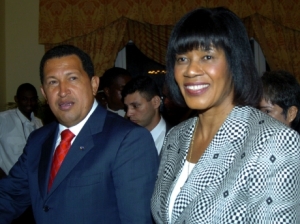 In suggesting that the PNP re-visit Michael’s early path – a path for the development of the majority of the people, a socialist path – I anticipate a response that focuses on the present PNP leader. Unlike too many, however, I believe that Portia can lead us in this direction if those close to her are genuine and have a deep love for the people. Portia should not have to answer to the 1% alone. The party now needs to begin to develop structures that allow the people, the 99%, to have as much say as the big companies. The PSOJ and those other bodies that represent the interest of a minority of Jamaicans are fine. But we need a PSOJ for the small companies, for the small and medium size farmers, for the youth in school, for the unemployed, so that all voices can be taken into consideration when national decisions are taken. Specifically, I am proposing that the PNP government develop or incorporate if they already exist, parish and national bodies representing the youth, the small farmers, the unemployed, the teachers, etc. so that the government can be consistently sensitized to their points of view and needs and not just those of the traditional big companies that form the PSOJ and similar bodies. Let us take Portia to the people so that she can hear their voices in a formal and consistent manner.
In suggesting that the PNP re-visit Michael’s early path – a path for the development of the majority of the people, a socialist path – I anticipate a response that focuses on the present PNP leader. Unlike too many, however, I believe that Portia can lead us in this direction if those close to her are genuine and have a deep love for the people. Portia should not have to answer to the 1% alone. The party now needs to begin to develop structures that allow the people, the 99%, to have as much say as the big companies. The PSOJ and those other bodies that represent the interest of a minority of Jamaicans are fine. But we need a PSOJ for the small companies, for the small and medium size farmers, for the youth in school, for the unemployed, so that all voices can be taken into consideration when national decisions are taken. Specifically, I am proposing that the PNP government develop or incorporate if they already exist, parish and national bodies representing the youth, the small farmers, the unemployed, the teachers, etc. so that the government can be consistently sensitized to their points of view and needs and not just those of the traditional big companies that form the PSOJ and similar bodies. Let us take Portia to the people so that she can hear their voices in a formal and consistent manner.
Listening only to the ‘big’ corporate bodies and institutions is the practical reflection of a definite ideological outlook; one which posits that those with greater wealth should have greater say in society and in return should have economic policy made mainly in their interest. As far as I know this is not the outlook of the PNP.
My hope is that as a nation we will begin to look for solutions within the developing countries in our region particularly those in ALBA and we should seek to do everything possible to strengthen CELAC, that historic organization which for the first time has given the exploited nations a single voice independent of the US and Canada. I believe that Jamaica should begin to look at formally joining ALBA if that has not already been done.
The poor have never benefitted from disunity
As Jamaicans, we have to rid ourselves of the petty party divisions and begin to look at strengthening unity among our people. The poor have never benefited from being disunited. And this unity should extend beyond our shores to include the poor throughout the region and certainly should not be limited to those who historically are close to us because of a common colonial oppressor. Our development, I think, should be part and parcel of the development of the entire Latin American and Caribbean region.
If the PNP does not do this, then my feeling is that 1938 will be revisited. The people, as we see happening elsewhere, will take things into their own hands because it would have been undeniably clear that both parties will make Everything Crash for the majority again, while displaying some nice looking economic indicators that tell good tales for the minority but impoverish and alienate the majority.
Dr. Al Grey is a retired Jamaican now living in the USA. He may be contacted at greyal2@yahoo.com
Source: Time to re-visit Michael Manley’s path — A vision for Jamaica
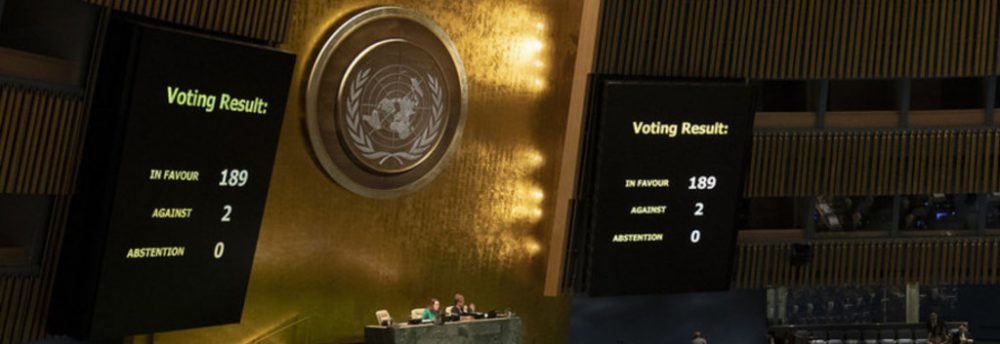
Timely and accurate piece. Talk shows need to spread it far and wide at home and abroad to the people who matter: primarily those on the ground and in the middle. Communities will be strengthening their capacity to move forward if they strive for unity as humanity, shunning historical partisan politics, creed, race divisiveness (HIM Haile Selassie 1, 1963, UN). Ways and means must be found to overcome the resolve of these 2 parties and their local/overseas masters to keep us apart. A critical mass of like minds must come forward to facilitate this. The products of the 70’s, now professors, CEO’s, Commissioners, professionals in general etc. have a responsibility to join with the masses who continue to suffer for the benefit of the few. Urgency is vital.
Merry Christmas! All the best to you and your loved ones in Year 2014!! Cheers~ 😀
Thank you; the very best to you and family for Christmas and 2014. Blessed love from Jamaica.
You’re welcome, my friend!
Happy Holiday~ Cheers!! 😀
Pingback: Dem belly full, but we hungry … Bob Marley | JSC: Jamaicans in Solidarity with Cuba
Pingback: Jamaica and the Politics of the Debt Trap | JSC: Jamaicans in Solidarity with Cuba
Pingback: Shame on the “THREE BLIND MICE” of the Caribbean Community! | JSC: Jamaicans in Solidarity with Cuba